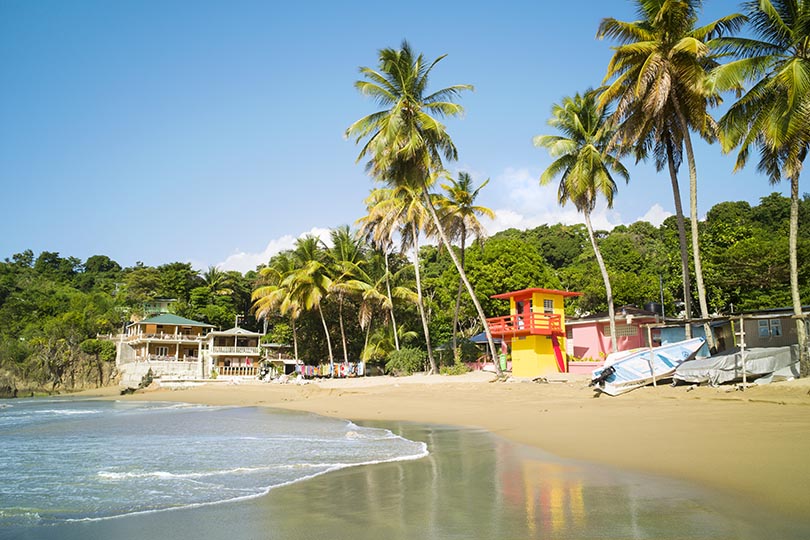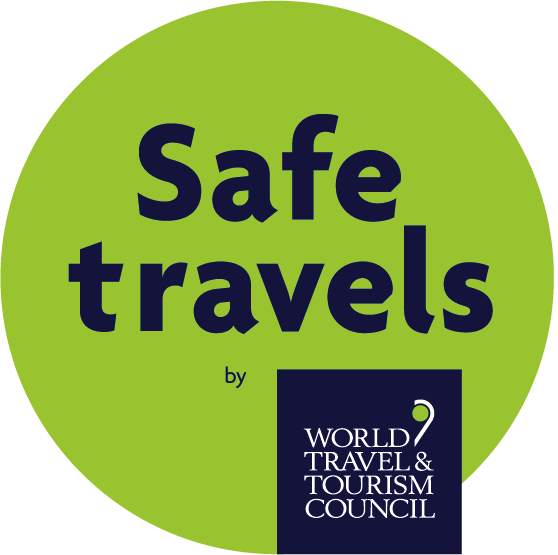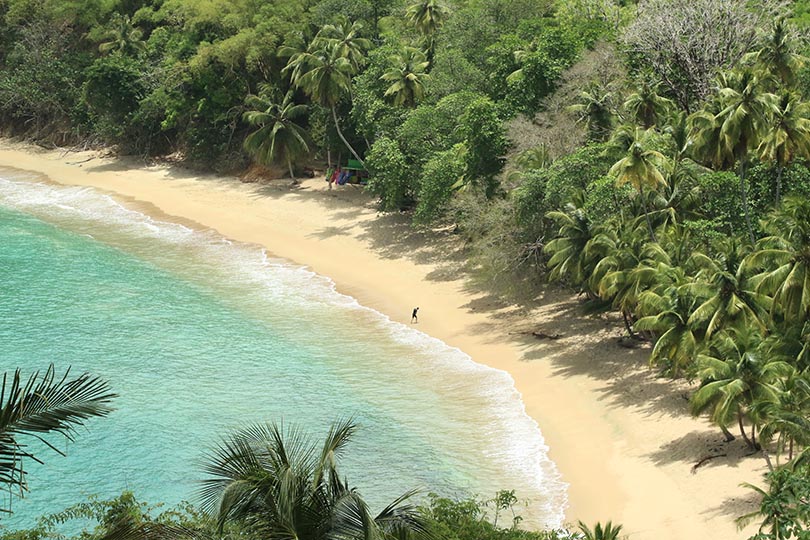How to regain consumer confidence using the WTTC Safe Travels stamp
The new WTTC stamp can reassure customers that health and safety is being taken seriously in their destination of choice. Madeleine Barber reports.
With consumer confidence currently at an all-time low due to fluctuating coronavirus restrictions in the UK and unreliable FCO travel advice there’s never been a better time for agents to shift attention to client reassurance.
Jeff Poole, senior vice president for advocacy at the World Travel and Tourism Council, says this is the key to the survival of the travel industry.
“In order for travel to recover we have to reassure customers that they will be safe when they’re travelling,” he explains, adding that “it’s really important to get travel back up and running as quickly as possible because [tourism] is so important to national and international economies”.
Poole cites this as the reason behind the development of a comprehensive series of health and hygiene protocols, which have been designed for use across 11 different tourism-focused sectors and created in conjunction with the World Health Organisation.
These protocols – which are available for anyone to download on the WTTC Safe Travels website – cover the likes of attractions, aviation and airports, short-term rentals, cruise, tour operators, car rental and MICE, and outline recommended measures for combatting the spread of Covid-19.
Introducing the stamp of approval
But implementing these protocols is only half the battle for organisations, with getting the message out to consumers the next big challenge. Recognising this, the WTTC decided to introduce the Safe Travels stamp so destinations – whether a small regional tourist board or national organisation – and their travel partners can market the efforts that have gone into making a country or region as safe to visit as possible. By recommending clients visit one of these destinations with the stamp, travel agents can even use it as a handy selling tool.
“Travel agents should recognise that [the stamp] is an assurance for the traveller – it cannot be seen as a certification or a guarantee, and you cannot use the expression ‘Covid-free’, but this is about having done as much as possible in terms of processes and protocols,” explains Poole.
This means all destinations showcasing the stamp have either mirrored or met the requirements of the WTTC protocols. At the time TTG went to press, the WTTC had approved the Safe Travels stamp for 95 tourism authorities and had a further 102 in the midst of the approval process.
Poole is confident the Safe Travels stamp represents a step towards travel’s recovery, saying: “We know it’s been a big success and we hope this will achieve the objective of providing reassurance to customers, although this is for the workforce as much as the traveller.”
Being able to use the WTTC Safe Travels stamp as a tool for restoring consumer confidence in certain destinations marks the beginning of the long road ahead when it comes to client reassurance post pandemic. It’s becoming increasingly clear that there will be hurdles to overcome as travellers maintain a high awareness of health and hygiene on holiday, which, says Poole, gives the Safe Travels badge “longevity”.
“The Safe Travels badge should become part of the DNA of travel,” he says. [Good safety measures are] a requirement and an expectation now.”
GIVEN THE GO-AHEAD
Tobago is just one of the destinations to be granted the Safe Travels stamp, where the WTTC-approved protocols in its new health and safety manual include but are not limited to:
- All businesses must have alcohol-based hand sanitiser of at least 70% readily available for all customers.
- All businesses must clearly display health and hygiene reminder posters detailing hand washing, the requirements for wearing face masks and additional cautionary measures to avoid the spread of viruses.
- All businesses must carry out frequent cleaning of high-touch surfaces such as telephones, lift buttons, light switches, door handles, heating or AC control panels, remote controls, and staff and guest computers.
- All restaurants must manage the flow of guests using reservations, maintain a 50% occupancy level, ensure tables are at least two metres apart, place a limit to the number of diners on each table, avoid self-service, ask servers to wear face coverings and consider using electronic menus.
- All accommodation providers must evaluate guests upon arrival, at a minimum checking temperatures and looking for respiratory issues such as a cough, runny nose or shortness of breath.
- Establishments with swimming pools should seek advice from an experienced water treatment advisor and test the water throughout the day to confirm adequate chlorine and PH levels are sustained.
- Tour operators must disinfect vehicles before and after pick up, require drivers and passengers to wear face masks at all times and where possible segregate the driver using a plastic sheet or equivalent.
Download the full Tobago Tourism Industry Health and Safety Manual for Post Covid-19 for free here.

















